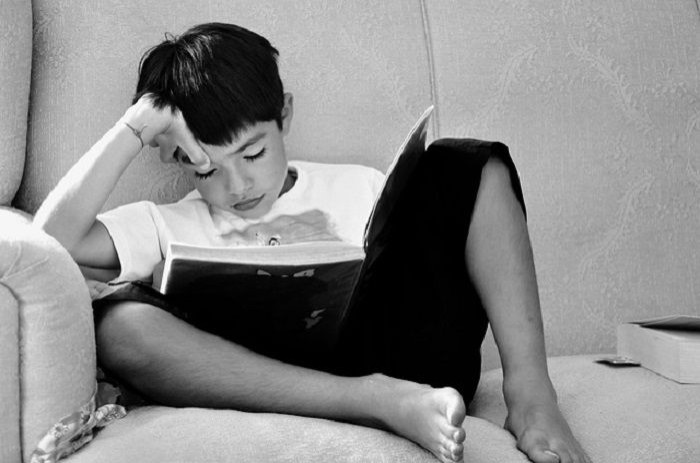Uncorrected Farsightedness In Preschoolers Linked To Poor Performance In Literacy

Children with uncorrected hyperopia, or farsightedness, fall behind in early literacy before they even start the first grade, suggests a new study published Wednesday in Ophthalmology.
The research found that preschool and kindergarten students with untreated farsightedness — a condition that makes it difficult to see things up close — performed worse on a test of early literacy than children with normal vision. These children who forgo wearing glasses may also be at risk of developing reading problems later in life, according to the study led by Dr. Marjean Taylor Kulp of Ohio State University.
Many people view literacy development as a process that begins in early childhood. This means “experiences in early childhood classrooms are often young children’s first exposures to key early literacy building blocks,” researchers wrote. Since it’s now known that in general those who aren’t reading fluently by third grade fail to ever catch up, many schools are responding to children experiencing early literacy struggles with intervention sooner.
In most children with hyperopia, the condition is mild and has little impact on vision, but some children with high hyperopia have glasses to correct the condition , researchers said. An estimated 4 to 14 percent of preschool children have moderate farsightedness, which often goes undiagnosed or untreated.
"There's a lot of controversy in terms of what to do with these kids," Kulp said in a statement, regarding those who argue against prescribing glasses because they believe children have enough ability to overcome the farsightedness. "But some doctors think it may be better to prescribe glasses because it could help improve vision or educational skills."
Researchers conducted an eye examination on nearly 500 children, aged 4 and 5 years old, and divided them into two groups, those with moderate farsightedness and those with normal vision. They were all administered a test of preschool early literacy.
Children with uncorrected moderate hyperopia performed significantly worse on the test than their peers. Their performance was most affected in the print knowledge domain of the test, which assessed the ability to identify letters and written words.
"These differences are meaningful because formal learning for many children begins in the preschool years," Kulp said. "In addition, other research exploring the long-term effect of early deficits in literacy has shown them to be associated with future problems in learning to read and write. This makes early detection of these problems important."
Previous studies have linked the visual condition to decreased reading ability, and visual attention in young children. Researchers believe preschool children may benefit from early educational interventions.
Researchers hope to do a follow-up study comparing young farsighted children with glasses and with uncorrected vision to determine whether prescribing glasses to children in this age group prevent them from falling behind in reading skills.
Source: Kulp M, Ciner E, Maguire M, et al. Uncorrected Hyperopia and Preschool Early Literacy. Ophthalmology . 2016.



























